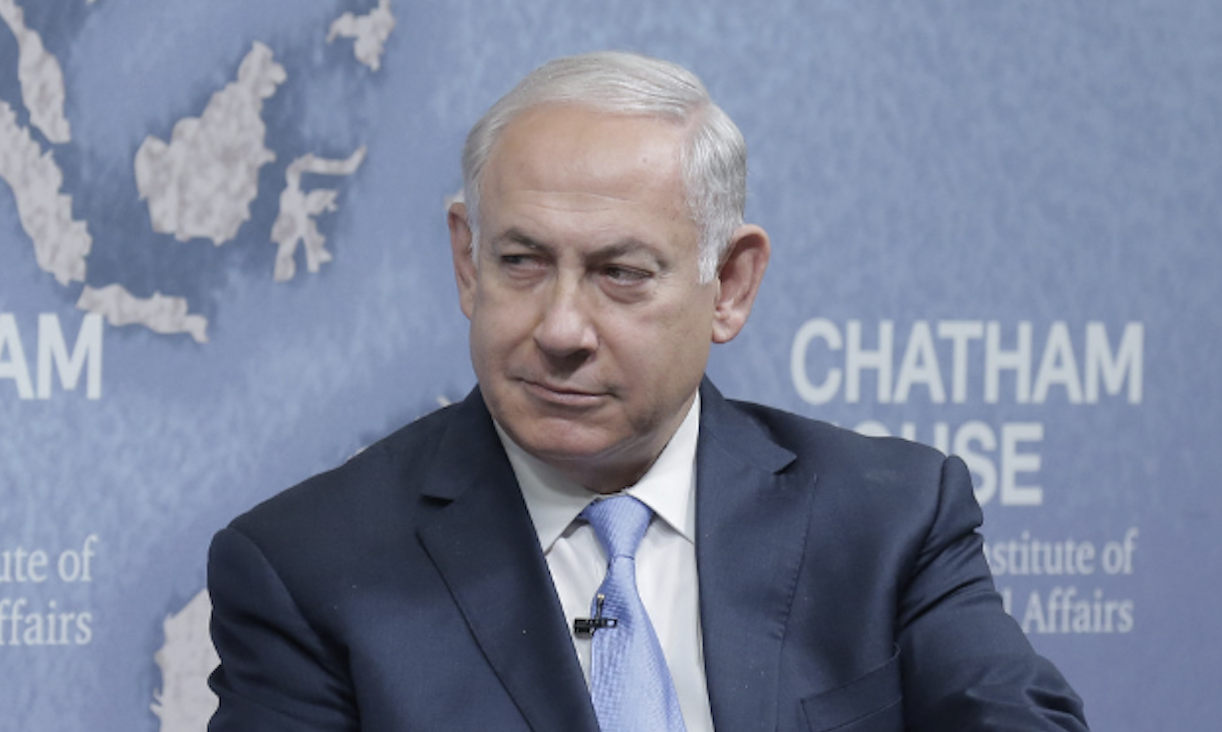News
Israel’s Democratic Stress Test: One Man’s Statesman is Another Man’s Populist
Israeli Prime Minister Benjamin Netanyahu is stuck between a rock and a hard place. After his ousting in 2021, the man viewed as being synonymous with Israeli politics spent the subsequent months painstakingly sewing together an alliance that could contest the 2022 elections. The result: a coalition government comprising parties across the political right.

Observing last Wednesday’s events within the Israeli Knesset – the country’s parliament – felt peculiar. Tour groups were ushered through the building in their usual fashion; ministerial aides could be seen moving hurriedly along the corridors, and inside the plenum where bills, motions, and parliamentary questions are raised, the mood was calm, with representatives from each major party extending their warm wishes to colleagues ahead of Passover.
The day’s events stood in stark contrast to previous weeks which saw hundreds of thousands gather across Israel, including outside the Knesset, to protest against the government’s proposed judicial reforms.
In December 2022, shortly after the formation of Israel’s 37th government in the country’s 75-year history, Prime Minister Benjamin Netanyahu’s coalition government outlined its three-point agenda: stopping the Iran nuclear programme, developing state infrastructure with emphasis on connecting peripheral communities to the country’s centre, and bolstering law and order. The latter has been particularly controversial given that it involves pronounced changes to the country’s judiciary, including amendments to the appointment process for judges, in addition to limiting the Supreme Court’s ability to oppose legislation.
Just two days prior to visiting the Knesset, Netanyahu had announced that he was pausing all new developments with his proposed judicial reforms, adding that Israel was in the “heart of a crisis” and he wanted to “prevent a rift in the nation”.
The crisis and rift he was referring to are the months of protests and demonstrations which have grown exponentially to become some of the largest in the country’s history.
Unrest from within
Israel is no stranger to crisis. In fact, some will argue that the country itself was borne out of it and continues to be shaped by new crises. From the formation of the State of Israel in the aftermath of World War 2 to the Six Day and Yom Kippur wars, to the First and Second Intifadas, Israel has been the subject of numerous existential crises. What is currently unfolding, however, is different. The unrest is from within.
Rather than unify Israelis against a common external adversary, the proposed reforms have driven a wedge down the middle of Israeli society, thereby pitting citizens against themselves.
Since announcing the proposed reforms in December, Netanyahu has remained steadfast, insisting that they are necessary.
“The government will take steps to ensure governance and restore the proper balance between the legislative, executive and judiciary,” he said in December. What “balance” might he be referring to? Because Israel has no constitution, it relies on a series of basic laws outlined in the country’s 1948 Declaration of Independence which are interpreted by the Supreme Court – the highest court in Israel.
This is problematic in the eyes of Netanyahu and his coalition government. They argue that the current system is not truly democratic; that despite being democratically elected, he and the government is beholden to an omnipotent Supreme Court which did not undergo the same electoral process as them.
‘State within a state’
The 15 Supreme Court judges are nominated by the Judicial Selection Committee and then appointed by the President of Israel, the latter occupying a ceremonial role within Israeli politics. The Supreme Court, therefore, has “unchecked and unbalanced power”. Supporters of the reforms agree with this sentiment, with some insisting that its power makes it a separate state within a state.
These same supporters, who typically come from more conservative reaches of Israeli society, are also quick to point out that the Supreme Court has historically leaned towards the left, owing to its establishment under David Ben-Gurion’s Labour government in 1948.
He has hit the Israeli people with a thousand-pound sledgehammer’
This bias – as viewed by supporters of Netanyahu’s reforms – has seen a dramatically interventionist Supreme Court overrule government attempts to control immigration and prosecute security operations in the occupied territories and has restricted anti-terrorism powers. Some fringe supporters have even insisted that too many Ashkenazi Jews occupy the Supreme Court, and the proposed reforms would provide an opportunity for greater diversity.
‘Assault on democracy’
While supporters of the proposed reforms view it as a “rebalance” of Israeli politics, critics consider it an all-out assault on democracy.
They believe Netanyahu is cascading down a populist slope, one which they see as a race to the bottom for Israel. Many view the changes as a direct attempt to weaken the country’s judiciary as it will likely result in Netanyahu sympathisers and ultra-conservatives appointed to the Supreme Court. Should this come to pass, critics are worried that the numerous bribery, fraud and breach of trust charges against Netanyahu will be dropped.
The hard-line, right-wing makeup of the coalition government in question is also a concern for many who are protesting against the proposed reforms.
As part of its agenda, the coalition government intends to prioritise West Bank settlement expansion as part of “developing state infrastructure with emphasis on connecting peripheral communities to the country’s centre”. A weakened Supreme Court, or one which favours the coalition government, will provide little opposition to such endeavours.
“He has hit the Israeli people with a thousand-pound sledgehammer,” says the director of an Israeli think tank, adding that “it is easy to see why people view him to be a populist”.
Indeed, Netanyahu has used textbook populist language: his government’s proposed reforms look to “fix” an aspect of Israel which is “broken”.
Game of survival
Scratch a little deeper and one will see that this is all fundamentally a game of survival for Netanyahu – one which requires he retain power.
In a February 2023 interview with the Wall Street Journal, Netanyahu spoke about Theodor Herzl, the founding father of modern Zionism and a source of inspiration for both Netanyahu and his father, Benzion Netanyahu:
“What the Jews lacked most was power,” Netanyahu remarked when reflecting on Herzl’s late 19th-century philosophy, adding that “unless you have power, you will not survive”.
Herzl did not live to see the formation of the State of Israel, which in his eyes was central to the Jewish people ensuring their survival. But where Herzl’s vision ended, Netanyahu’s was just beginning.
The veteran Israeli politician has made clear that power is at the centre of his decision-making process, and any attempt to attain and amplify it is worth fighting for. This cannot be underestimated. Should Netanyahu fail to deliver on his proposed reforms, he risks the collapse of his coalition government.

Itamar Ben-Gvir, Israel’s National Security Minister and leader of the Otzma Yehudit party, a coalition partner, has publicly threatened to leave the coalition government should the reforms be halted. It is understood that he only agreed to Netanyahu’s recent decision to halt the reforms in exchange for a promise from Netanyahu that he would raise the issue of forming a national guard within the National Security Ministry.
Trapped
Netanyahu is stuck between a rock and a hard place. After his ousting as prime minister in 2021, the man viewed as being synonymous with Israeli politics spent the subsequent months painstakingly sewing together an alliance which could contend for the 2022 elections. The result: a coalition government comprising parties across the political right.
This coalition is eager to drive a series of conservative, and, in some cases, ultranationalist reforms, including orders to ban the Palestinian flag from being flown in public, to the provision of sizeable stipends for ultra-Orthodox men who prefer to study instead of work.
Otzma Yehudit has six seats in the 120-member Knesset, without which Netanyahu’s 64-seat coalition would lose its majority and almost certainly collapse. Any defections therefore pose an existential threat to Netanyahu and spell a return to the drawing board.
As one Israeli journalist explained, “The old Netanyahu is gone; he was the statesman. The new Netanyahu is just trying to retain power – he is a politician.”
Yet, to others, Netanyahu remains a statesman; someone who knows how to play the political game, having now served as prime minister twice. Many will credit him with strengthening Israel’s economy, military and image on the global scene. The ratification of the Abraham Accords in 2020 is perhaps his greatest achievement yet, whereby Israel agreed to a series of treaties normalising diplomatic relations with the United Arab Emirates, Bahrain, Sudan and Morocco – all of which are Muslim-majority countries.
Given his track record, many believe in the proposed reforms, trusting that what Netanyahu is proposing is in Israel’s best interests.
At the time of writing, all proposed reforms have been paused until late April when the Knesset returns from its Passover recess. Passover is a time where the Jewish people traditionally celebrate the Israelites’ escape from slavery in Egypt during 1300 BC, yet this is likely to be a time when many Israelis fear for their democratic freedoms.
Netanyahu and his coalition government are likely to also be kept busy during the Passover recess, thinking of how they can push their reforms over the line without bringing Israel to its knees.
What is clear is that there are two sides in this struggle, both of which care deeply about their stance and who will not stand down. Behind closed doors, however, this is all about survival for Netanyahu and key to ensuring this is satisfying his coalition partners.
This article originally appeared on the Daily Maverick
Photo: Chatham House


